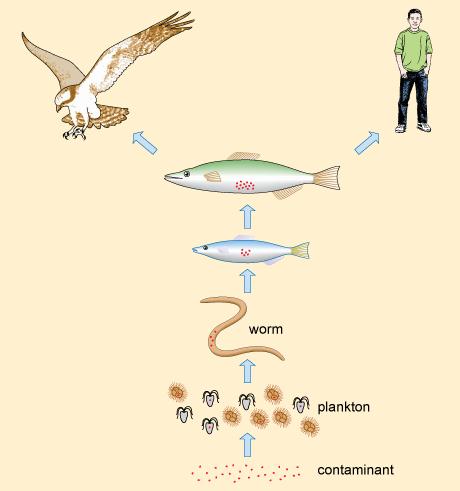2 The problem of pesticides
This investigation considers the presence of organic compounds in water. These are carbon-containing compounds, generally man-made in origin, and include crude oil and its derivatives, detergents, and pharmaceuticals and their metabolites. But perhaps the class of organic compounds that cause the most concern when present as contaminants in water, owing to their toxicity, is pesticides.
The term ‘pesticide’ encompasses a wide range of organic compounds used to control weeds (herbicide), fungi and moulds (fungicide), insects (insecticide) and pests (pesticide). Traces of these compounds may enter rivers and surface water as run-off from agricultural land (where they are used to protect crops) or via non-agricultural use (for example, the use of herbicides to control weeds along motorway verges). They may also percolate through soil into ground water.
A particular class of pesticides known as organochlorine pesticides (OCPs) are now banned in many countries. An example is dichloro-diphenyl-trichloro-ethane (DDT). This class of pesticides is very persistent, remaining active in the environment for a long time after initial contamination. Such chemicals may still be observed in samples many years after they have been banned. A number are, however, still in use in lower- and middle-income countries.
Pesticides can also become increasingly concentrated in organisms as you move up the food chain, as species consume greater quantities at each level (Figure 2). This process leads to there being much greater concentrations of the pesticide in affected organisms than was initially present in the water itself.
Pesticides, in addition to their inherent toxicity to many species, include a class of chemicals that may play a role in a range of health problems from reproductive abnormalities to defects of the immune and nervous systems to cancer. An example of this type of chemical is dieldrin, one of the OCPs. This was once a widely used insecticide, although it is now banned in the EU.
1 Water is precious

